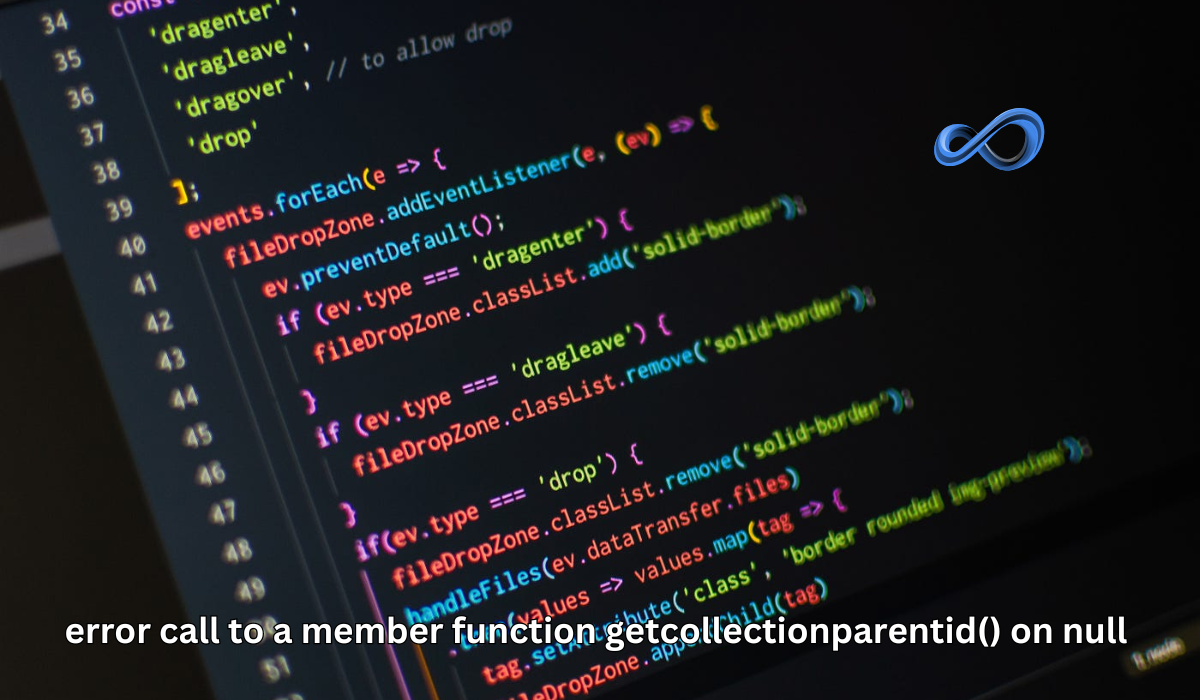Are you facing the “call to a member function getcollectionparentid() on null” error in your application? This error typically occurs when the code tries to invoke a method on a variable that hasn’t been initialized properly, resulting in a null reference.
What Does It Mean? This error means that your code is attempting to call the getcollectionparentid() method on an object that is currently null. In object-oriented programming, this often happens when an object hasn’t been created or initialized before a method is called on it.
Common Causes:
- Uninitialized Variables: The variable intended to hold the object might not be initialized properly.
- Incorrect Object Instantiation: The object may not have been instantiated or assigned correctly.
- Logic Flaws: There may be a flaw in the logic of your code that results in the object being null when the method is called.
How to Fix It:
- Check Initialization: Ensure that the object is properly instantiated before calling any methods on it.
- Add Null Checks: Implement null checks to verify that the object is not null before calling methods on it.
- Debugging: Use debugging tools to trace where the object is supposed to be assigned and identify why it’s null.
Example Fix:
php
if ($object !== null) {
$parentId = $object->getcollectionparentid();
} else {
// Handle the case where $object is null
}Witnessing the Error in Action
To solidify our understanding, let’s consider some real-world examples within popular CMS and e-commerce platforms:
-
WordPress Woes: Imagine a plugin that strives to retrieve the parent category of a post. However, if the post hasn’t been assigned to any category, the data is missing this vital piece of information. Consequently, when the plugin attempts to call
getCollectionParentId()on such a post, it encounters a null object, triggering the error. -
Magento Mishaps: While processing product data in a Magento store, the code might attempt to call
getCollectionParentId()to obtain the parent category ID of a product. But what if the product isn’t assigned to any category? This data inconsistency would again result in a null object and the dreaded error.

Conquering the Error
Armed with a thorough understanding of the error’s causes, we can now equip ourselves with the tools to vanquish it:
- Data Validation: Building a Strong Foundation
The cornerstone of error prevention lies in data validation. By meticulously inspecting your data for missing or invalid parent IDs before calling getCollectionParentId(), you can proactively identify and address potential issues. Imagine a vigilant guard stationed at the entrance, meticulously checking for the detective’s credentials (parent ID) before allowing them to proceed (function execution).
- Error Handling: Embracing the Inevitable
Even with the most robust data validation, there might be situations where parent IDs are genuinely absent. To safeguard against such scenarios, incorporate error handling mechanisms into your code. These mechanisms allow the code to gracefully handle the error, preventing your program from grinding to a halt. Think of error handling as a safety net – it catches the potential fall (error) and ensures a smooth program execution.
- Code Review: A Vigilant Eye
Regular code review practices are paramount. By meticulously examining your code, you can identify instances where getCollectionParentId() might be called on objects that could potentially be null. This proactive approach helps nip errors in the bud before they cause disruptions. Imagine a code review as a detective’s keen eye, meticulously scrutinizing the scene (code).
Employing Code Reviews for Error Prevention
Continuing our analogy, code review acts as a detective’s keen eye, meticulously scrutinizing the scene (code) to identify potential alibis (null objects) that could lead to the “error call to a member function getcollectionparentid() on null ” error. By systematically reviewing the code, developers can uncover scenarios where the getCollectionParentId() function might be called on objects that lack a parent ID. This proactive approach allows for early detection and rectification of these issues, preventing the error from manifesting in the first place.
Here are some specific strategies for conducting effective code reviews:
- Static Code Analysis Tools: Leverage static code analysis tools to automate the process of identifying potential errors and code smells. These tools act as an initial sweep, flagging areas of the code that warrant closer examination by the human detective (reviewer).
- Focus on Logic Flow: During code review, meticulously trace the logic flow, paying particular attention to how objects are being created and manipulated. Identify code blocks where
getCollectionParentId()is being called, and scrutinize whether there are appropriate safeguards in place to handle null objects. - Test Case Coverage: Ensure that your test suite encompasses scenarios where the object being queried for a parent ID might be null. By writing test cases that deliberately trigger these situations, you can proactively expose potential errors.

Mitigating Data-Driven Errors
While code review plays a crucial role in error prevention, it’s equally important to address underlying data issues. Here are some strategies to mitigate data-driven errors:
- Data Cleaning and Migration: If you’re dealing with pre-existing data that might be riddled with inconsistencies, data cleaning and migration processes become essential. These processes involve identifying and rectifying missing or invalid parent ID entries. Think of this as a detective meticulously combing through evidence (data) to uncover and address inconsistencies.
- Data Validation at the Source: Implement data validation mechanisms at the point of data entry or import. This ensures that data integrity is maintained from the very beginning, preventing the introduction of errors that could later trigger the “error call to a member function getcollectionparentid() on null ” error. Imagine a data entry form equipped with validation rules that ensure the mandatory presence of parent ID information before allowing data to be saved.

